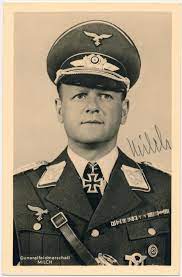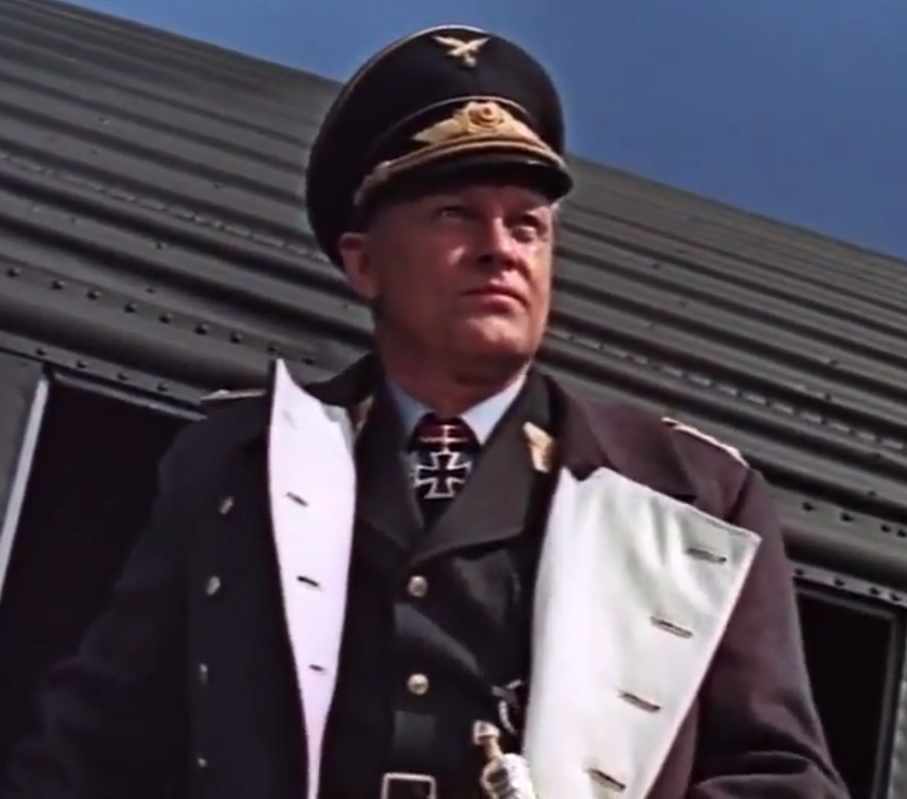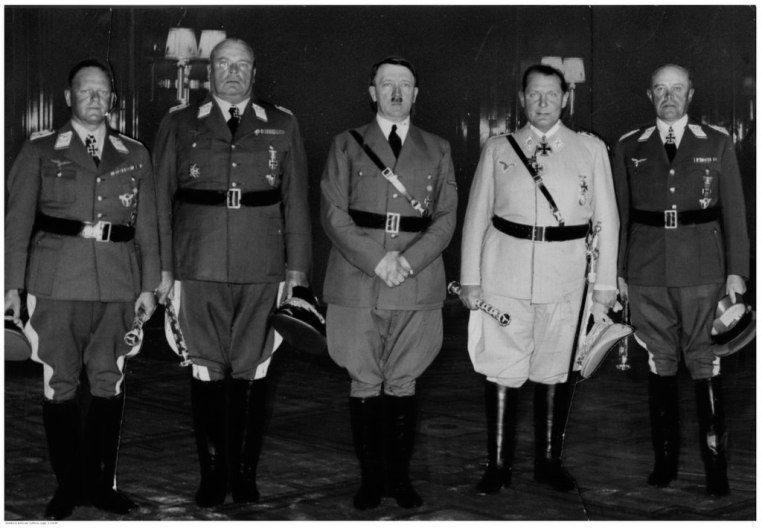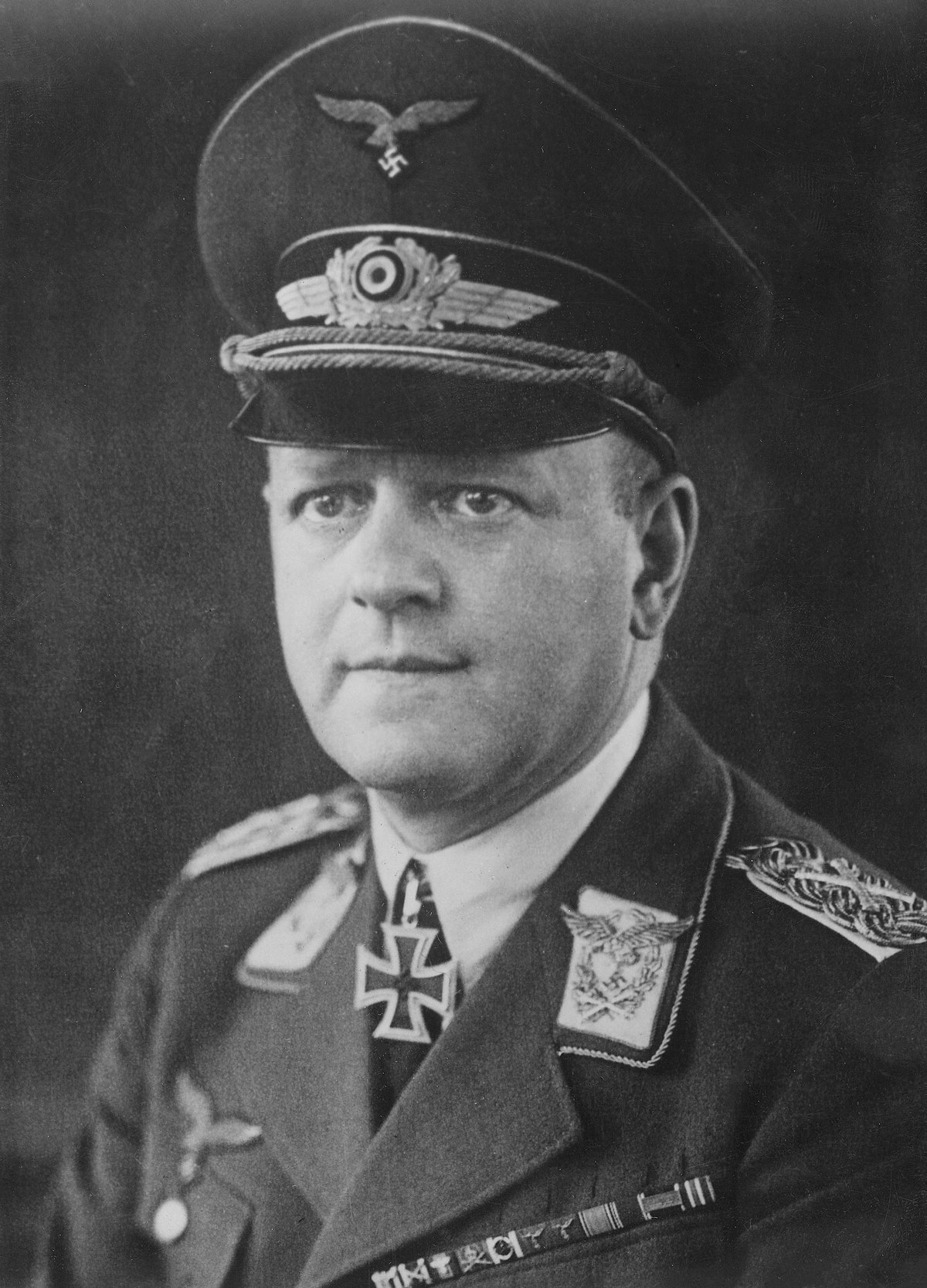
Erhard Milchwas a German field marshal general who managed the formation of the German air force (Luftwaffe) as part of Nazi Germany's effort to re-arm after World War I. This effort was part of the re-armament of Germany.
He served as the Inspector General of the Luftwaffe in addition to his role as State Secretary in the Reich Ministry of Aviation. He oversaw all aspects of aircraft manufacturing and supply for most of the duration of World War II.
During the Milch Trial, which took place in front of a United States military court in 1947, he was found guilty of committing war crimes and received a sentence of life in prison; he was eventually freed in 1954. In this article, we will investigate Erhard Milch's contributions to both world wars as well as his position in both conflicts.
Early Life Of Erhard Milch
Erhard Alfred Richard Oskar Milch was born on March 30th, 1892, in the city of Wilhelmshaven, Germany. He rose through the ranks of the Third Reich to become a prominent leader.
In 1910, he graduated from high school and immediately entered in the military as an officer candidate in the First Heavy Artillery Regiment in Konigsberg, East Prussia. The following year, he was advanced to the rank of lieutenant.
Ancestry And Jewish Heritage Of Erhard Milch
Milch was born in Wilhelmshaven. His parents were Anton Milch, a Jewish chemist who served in the Imperial German Navy, and Clara Vetter. The Gestapo later probed Milch because of his Jewish ancestry. Milch would have been classified as mixed race (mischling) under the Nuremberg Laws.
But under the orthodoxy (halakha) of that faith, which holds that a person's Jewish status is inherited through the mother, he would not have been regarded as Jewish. Rumors were going around in 1935 that Milch's father was Jewish.
The chief of the Luftwaffe, Hermann Göring, issued a document from Milch's mother stating that her uncle Karl Brauer was her real father, ending the Gestapo's probe. After that, Milch received a German Blood Certificate. If verified, it would imply that Clara, Milch's mother, had engaged in both incest and adultery.
Services Of Erhard Milch In World War I
In 1910, Milch joined the German Army, and at the start of World War I, he led an artillery regiment in East Prussia, rising to the rank of lieutenant. In September 1914, he witnessed combat with the Russian Army near the River Deime, and in February 1915, he witnessed action on the Angerapp Line. He joined the Imperial Air Force (Fliegertruppe) in July 1915 and received training as an aerial observer on the Western Front. He saw duty on the Somme in 1916, from the time it became the Luftstreitkräfte in October of the same year, until later in 1917 in Flanders.
In the final days of the war, he was promoted to captain and given leadership of a fighter wing, Jagdgruppe 6, despite the fact that he had never had flight training and was unable to fly himself. This came after a stint as a company commander in the trenches throughout the spring and summer of 1918.
In 1920, Milch left the army to pursue a career in commercial flying. Milch established a modest airline in Danzig under the Lloyd Luftdienst name, which is Norddeutscher Lloyd's Union of Provincial German Airlines, alongside his squadron mate Gotthard Sachsenberg. The airline connected the Baltic States with Danzig. Milch took over as managing director of the firm that succeeded it in 1923.
After that, Milch and Sachsenberg joined the competitor Junkers Luftverkehr, where in 1925, Milch became a managing director. Milch was appointed as one of the three managing directors of the newly established airline Deutsche Luft Hansa in 1926.
On April 1, 1929, Milch became a member of the Nazi Party (number 123885); nevertheless, his membership was not formally recognized until March 1933 since Hitler felt it was preferable to conceal the information for political purposes.
Milch As State Secretary
Milch started working as the Reich Ministry of Aviation's (RLM) State Secretary on May 5, 1933, reporting directly to Hermann Göring. In this role he played a crucial role in the formation of Nazi Germany's air force, the Luftwaffe. Hugo Junkers and Willy Messerschmitt were among the prominent figures in the aircraft industry with whom Milch promptly settled personal scores using his position.
To be more precise, Milch forbade Messerschmitt from entering a design in the competition to create a new fighter plane for the Berlin Air Force. By outwitting Milch, Messerschmitt was able to get around the prohibition and successfully submit a design.
The victor turned out to be the Bf 109, a corporate entry from Bayerische Flugzeugwerke created by Messerschmitt. Up to the Me 210 aircraft's demise, Messerschmitt was the industry leader in the German aviation sector. Even after that, Milch, as the leader, did not remove him but put him in a lesser position.
Erhard Milch Services In World War II
Milch, now Generaloberst, became Luftwaffe Inspector-General on February 1, 1939.Milch led Luftflotte 5 in Norway's Operation Weserübung after WWII. Milch was elevated to Generalfeldmarschall in the 1940 Field Marshal Ceremony after France's surrender.
Milch became Generalluftzeugmeister when Generaloberst Ernst Udet committed suicide in November 1941, overseeing Luftwaffe aircraft manufacturing, armament, and supplies. In April 1942, he was appointed to the Central Planning Board with Reich Minister of Armaments and War Production Albert Speer and State Secretary Paul Körner to coordinate industrial war production.
Milch revived the development of the unsuccessful and harmful Me 210 and He 177. Under his leadership, aircraft manufacturing centered on mass-producing proven types. Summer 1943 output increased from winter 1941–1942. Adam Tooze said, "German aircraft manufacturers achieved economies of scale for the first time.
The Luftwaffe's 1940–41 resources were being used for mass assembly. To accomplish mass manufacturing, the Armaments Ministries and industry worked with the SS to recruit concentration camp inmates. Milch's SS ties helped the Luftwaffe get slave labor.
To increase quantity, Milch sacrificed quality, as with the Bf 109. The cost of Milch's policies was evident when the US Air Force actively challenged Luftwaffe fighter units. Tooze called the Bf 109 G "little more than death traps" due to poor handling.
Milch finally addressed Germany's lack of a "four-engined" heavy bomber to attack Britain on August 10, 1943. He approved Arado Flugzeugwerke as the Heinkel He 177B heavy bomber subcontractor. Just three flyable prototypes were finished by early 1944.
Since March 1944, Milch and Speer led the Jägerstab ("Fighter Staff"), a government task group that sought to enhance fighter aircraft production by shifting production sites underground. Allied with the SS, the task force exploited slave labor for the German aircraft industry and Luftwaffe.
Milch worked with Joseph Goebbels and Heinrich Himmler to persuade Hitler to fire Göring from Luftwaffe leadership in 1944. Hitler refused. Thus, Göring fired Milch as State Secretary, Generalluftzeugmeister, and Luftwaffe Inspector General on June 20, 1944, and January 1945.
He worked under Speer in the Rüstungsstab (Armaments Staff) from August 1944 but was marginalized and unsuccessful. He spent weeks in the hospital after an autumn 1944 automobile accident. After joining the Führerreserve in March 1945, he was not transferred.
Erhard Milch Trial And Conviction At Nuremberg
In 1947, a US Military Tribunal in Nuremberg prosecuted Milch on charges of war crimes. On two counts, he was found guilty:
- War crimes, by taking part in the mistreatment, exploitation, and forced labor of POWs, as well as the deportation of civilians for the same purposes.
- Crimes against humanity by taking part in the killing, annihilation, slavery, deportation, incarceration, torture, and usage of prisoners of war, German citizens, and civilians under German rule as slave labor.
Milch received a life sentence in jail. Milch was not immediately sent to Landsberg Prison to serve out his sentence, in contrast to the great majority of other Nazi war criminals who were prosecuted under U.S. military law. Instead, he was transported to Rebdorf Prison, which is located close to Munich, but he was then moved to Landsberg.
In 1951, Milch's sentence was reduced to 15 years in jail; in June of 1954, he was granted release. He spent his last years in Düsseldorf, where he passed away in 1972 as the only Luftwaffe field marshal still alive.
Awards Received By Erhard Milch
Throughout his tenure in the German armed forces, Erhard Milch was bestowed with several accolades and distinctions, especially during his time serving in the Luftwaffe and under the Nazi government.
The Knight's Cross of the Iron Cross, which he was granted on May 4, 1940, was one of his noteworthy honors. Milch was the head of Luftflotte 5 and Befehlshaber Nord (commander-in-chief north) at the time, with the title of Generaloberst. He received this esteemed military award in recognition of his noteworthy leadership and achievements to the Luftwaffe in the early phases of World War II.
Erhard Milch was awarded the Grand Cross with Swords of the Order of the White Rose of Finland on March 30, 1942, when he was still a Generalfeldmarschall, in addition to the Knight's Cross of the Iron Cross. This Finnish order is given to those who have distinguished themselves in their areas and serves as a sign of admiration and acknowledgment.
Erhard Milch - FAQs
When Was Erhard Milch Born?
On March 30, 1892, Erhard Milch was born.
What Function Did Erhard Milch Serve In The Luftwaffe Of Nazi Germany?
Under the Nazi government, he was a key figure in managing the growth and development of the German air force, the Luftwaffe.
Conclusion
The intricacies and paradoxes of Erhard Milch's time were reflected in his life and work. He started as an aviation enthusiast, worked his way up through the German military, and eventually emerged as a significant player in the formation of the Luftwaffe and the militarization of Nazi Germany.
His significant contributions to the Air Force's development won him honors and acclaim. After World War II, Milch was found guilty of war crimes and crimes against humanity due to his affiliation with the Nazi government. Even though his sentence was eventually reduced and he was freed, his legacy will always serve as a sobering reminder of the terrible periods in history in which certain people were involved.


